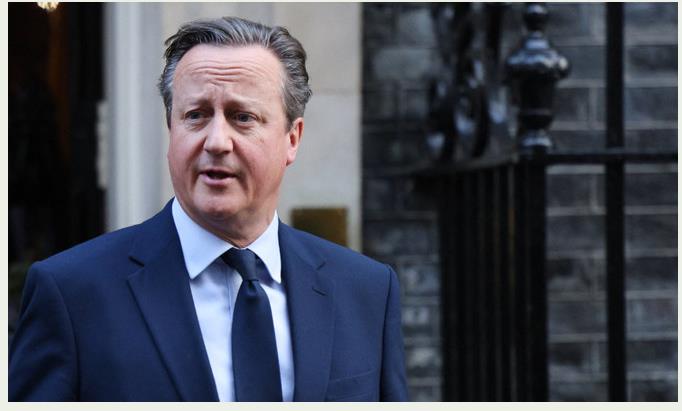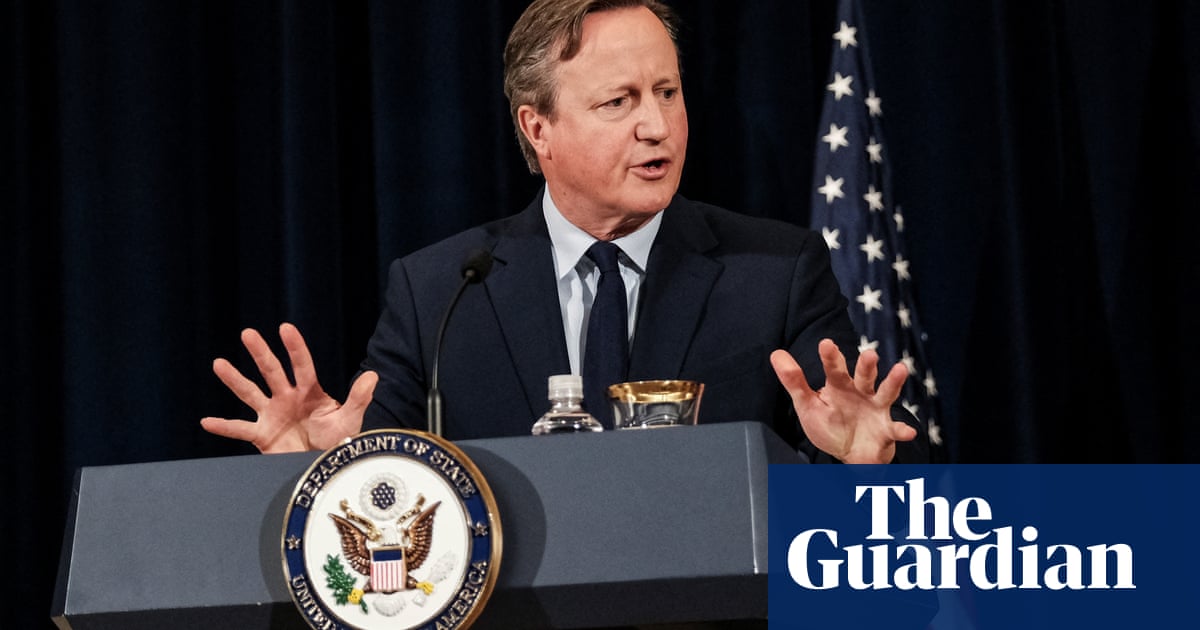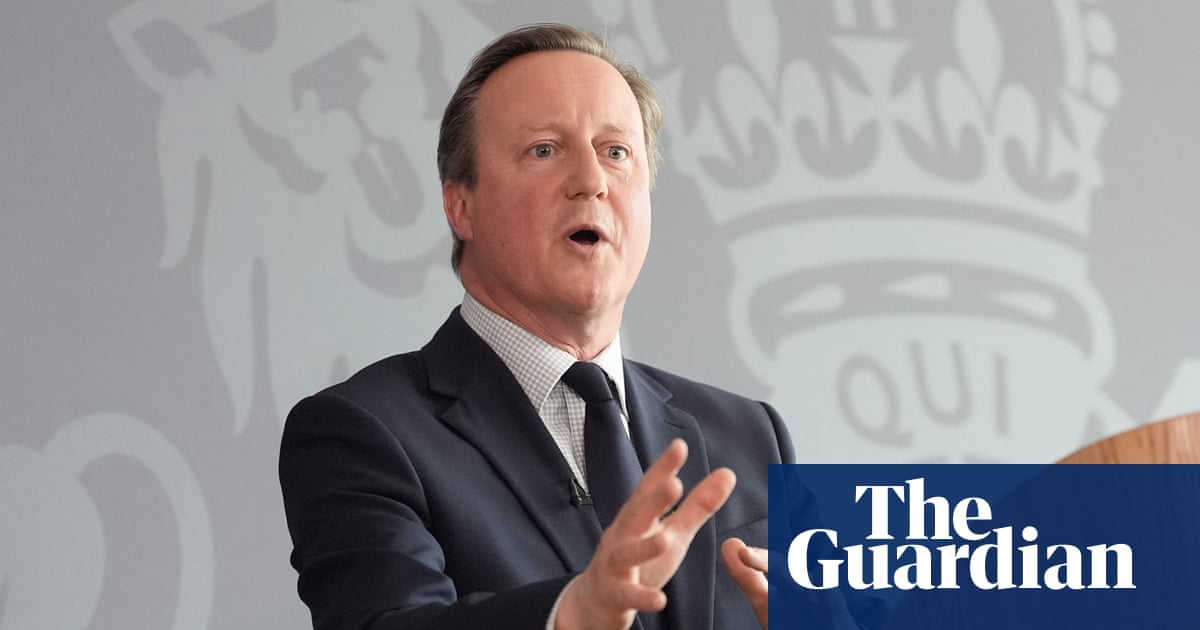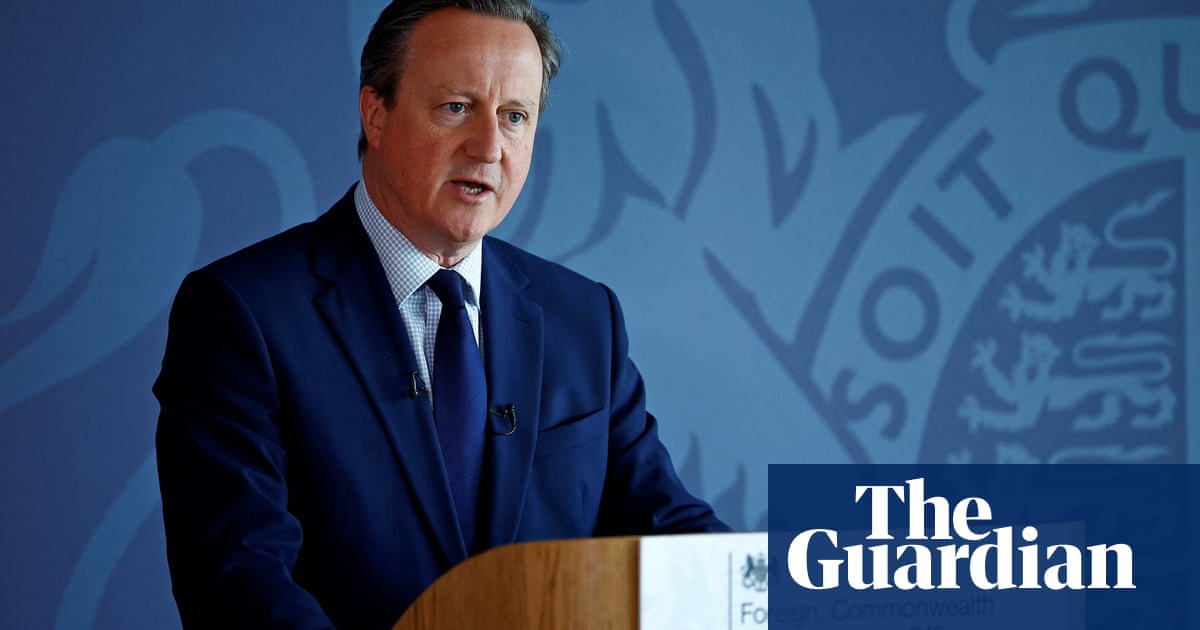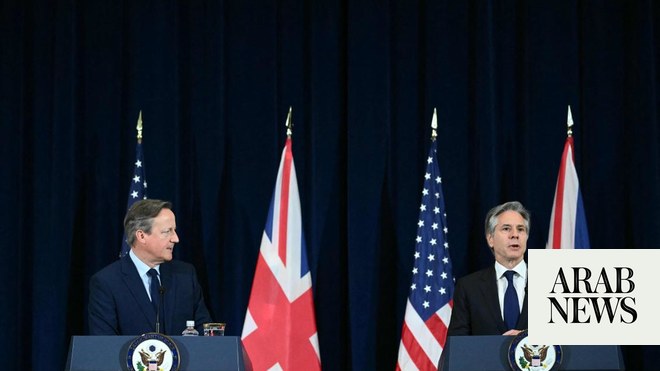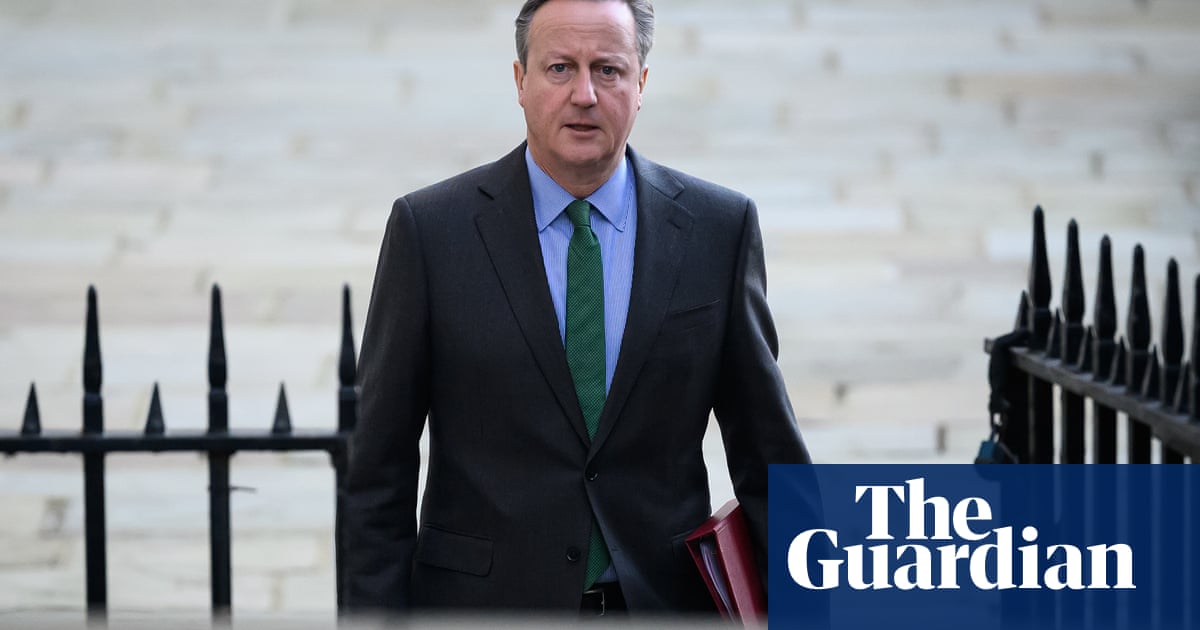
The chair of the foreign affairs select committee is writing to the foreign secretary, David Cameron, asking him to clarify his claim that he had not taken any formal decision to allow arms sales to Israel to continue amid the Gaza crisis.
Written evidence presented by the UK Department for Business and Trade shows the foreign secretary on 8 December recommended arms sales licences be allowed to continue when presented with three options: stopping arms sales, pausing them, or allowing them to continue.
Foreign Office officials, in papers sent by the foreign secretary, had expressed serious concerns about aspects of the Israeli assault against Hamas. They also said the Foreign Office did not agree with Israeli claims that it did not have a legal duty to provide humanitarian aid to Gaza, but only to allow others to provide aid, and that this permission could be conditional.
The business and trade secretary, Kemi Badenoch, on 18 December concurred with Lord Cameron’s recommendation that Israel was not in breach of international humanitarian law (IHL) and the arms exports could continue.
At an evidence session on 9 January, the chair of the foreign affairs select committee, Alicia Kearns, along with other committee members, repeatedly pressed Cameron on whether arms export licences should be stopped on grounds that IHL was being breached by Israel.
The Italian foreign minister at the weekend confirmed Italy blocked all arms exports to Israel as soon as the attacks in Gaza started.
Although Cameron admitted to committee members that he had worries about aspects of the Israeli military campaign, and that advice had been given to him on a rolling basis by officials, he did not disclose – despite twice being asked by the committee chair – whether a formal review took place.
Cameron also said he acted only on the advice of officials, not suggesting he himself made a ministerial decision when faced with options. He said: “My job is not to make a legal adjudication. I am not a lawyer.”
He also initially refused to tell MPs when asked if he had ever received advice saying Israel was in breach of IHL. He later added: “The legal advice I have received is consistent with the fact that we have not changed our export procedures.”
Kearns, a Conservative MP, is writing to the Foreign Office to seek clarification of the decision-making process and to ask whether any of the evidence given needs revision.
The Foreign Office’s internal discussions were revealed in a business department court affidavit including partial extracts from aspects of Foreign Office official papers sent to ministers.
These were presented to the high court in a claim for a judicial review of the continuance of arms sales that has been lodged by Global Legal Action Network, an NGO. To fend off the case, the department is required to show the courts its decision-making process was fair and rational.
The papers show the Export Control Joint Unit launched “a change in circumstances review” in view of Israel’s military campaign inside Gaza, and a parallel review took place in the Ministry of Defence that concluded on 27 November.
The Foreign Office papers said: “Given the paucity of information, the scale and intensity of the conflict, the death toll, the unusual civilian population density coupled with their inability to evacuate and the concomitance mounting effects of the conflict on civilians, [the government’s] current inability to come to a clear assessment on Israel’s record of compliance with IHL poses significant policy risks.”
The Foreign Office then sought and received written assurances from the Israeli embassy, but still wrote to Cameron on 8 December saying it was for him to decide if there was a commitment to comply with IHL.
The paper set out the options and said “that the availability of each of the options turned on the foreign secretary’s assessment of whether there is a clear risk that items would be used to commit or facilitate a serious violation of IHL”.
On 12 December, the court document says Cameron “decided that he was satisfied that there was good evidence to support a judgment that Israel is committed to comply with IHL. On the basis of that assessment in particular, the foreign secretary decided to recommend option 1 to the secretary of state for business and trade.”
During his evidence session, the foreign secretary admitted internal discussions had taken place.
He said: “What I have to do is act on the advice that I am given. That advice is based on what we believe is happening, so we ask a whole series of questions of the Israeli government about individual actions that are brought to our attention.
“We receive advice on that, consider that advice, and then pass it on to the department of trade for them to make the decision on arms exports.”




